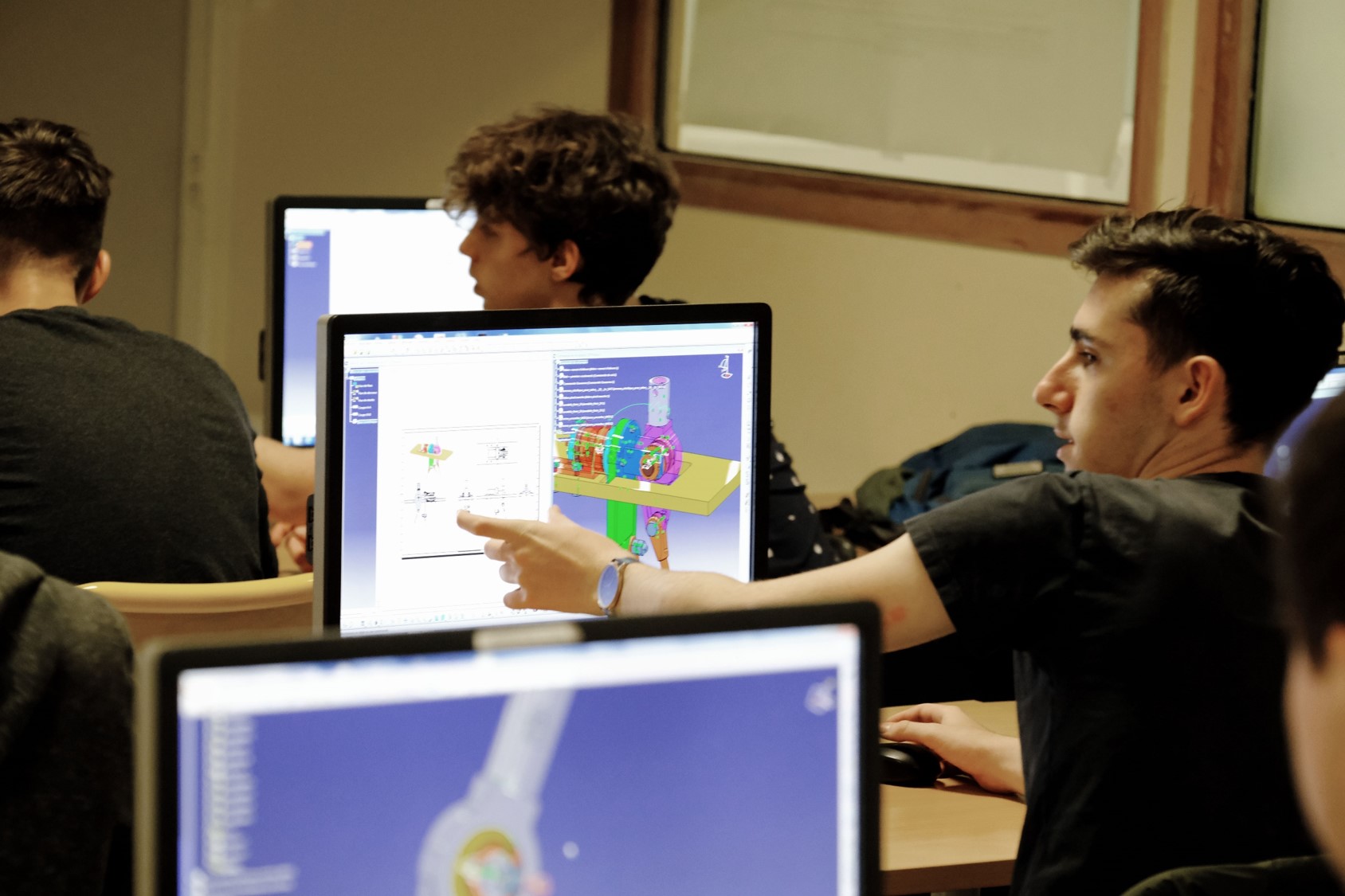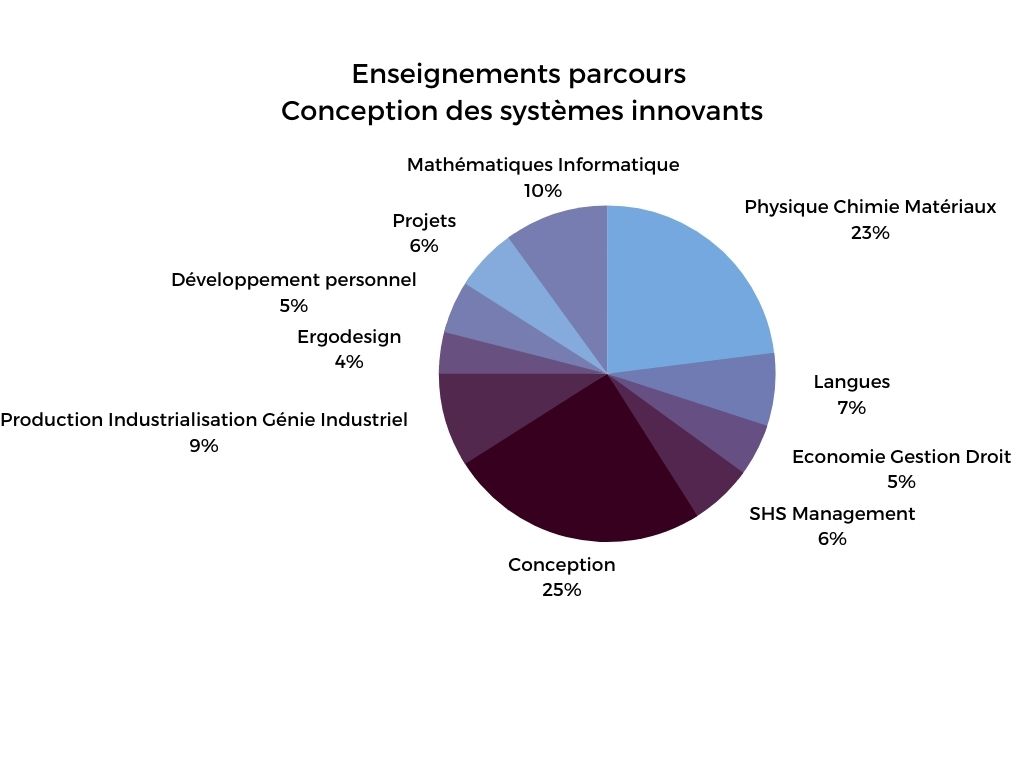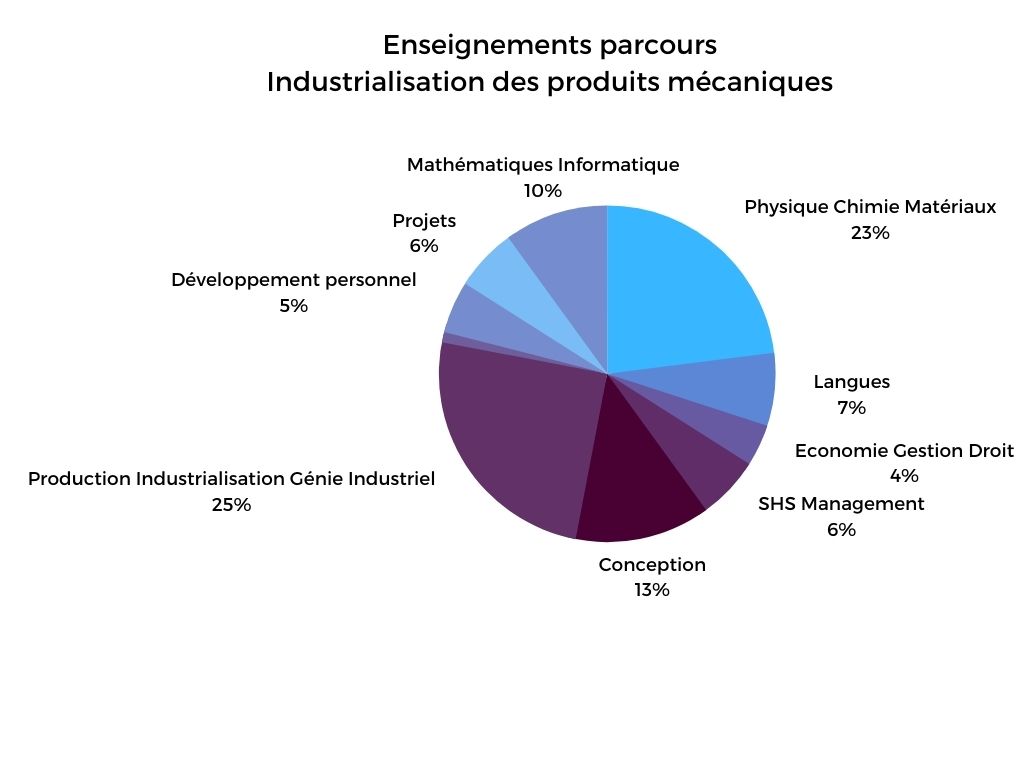Presentation
2 curriculums
Design of innovative systems
- Define some product specifications, taking into account both the design and sensory aspects
- Anticipate and suggest innovative technological solutions, reckoning with the constraints of mass production, and objectives in terms of cost, quality, deadlines and the environment
- Manage projects within international teams
Mass production of mechanical products
- Design and implement a manufacturing and control range
- Control a production line and/or a manufacturing process
- Redesign a manufacturing range by incorporating new and more efficient methods/machines
- Manage client and supplier relations on the aspects of law, technique and finance

Advantages of apprenticeships
- Free training leading to a qualification
- The corporate assignments help students feel responsible
- Training in state-of-the-art sectors in relation with ENISE's research fields
- Training designed by businesses, but thought through and approved by a Grande école
- 3 years of experience, speeding up the students' process of occupational integration
- Double tutoring within the company and at ENISE
Organisation of the apprenticeship
- The three years of training are organised in 6 semesters including approximately 1800 hours of academic teaching
- The work/study period is progressive:
5 periods of 4 and 7 weeks at ENISE in the 1st year - 5 periods of 3 to 4 weeks at ENISE in the 2nd year
- 3 periods of 4 weeks at ENISE in the 3rd year
- A 12-week international curriculum is compulsory, including a minimum of 9 weeks of international mobility (during the working periods)
- Personalised mentoring throughout the course, via the double tutoring of the company and the school


Admittance conditions
- Applicants must be under 30 years old and have acquired a two-year technology degree in France (Bac+2) such as a DUT or BTS or a degree such as Licence (Bac+3)
- Here is the complete list of degrees with which you can apply for the Mechanical Engineering course as an apprentice:
- DUT GMP (Génie Mécanique et Productique)
- DUT GIM (Génie Industriel et Maintenance)
- DUT SGM (Sciences et Génie des Matériaux)
- BTS CPI (Conception de Produits Industriels)
- BTS CPRP (Conception des Processus de Réalisation du Produit)
- BTS CIM (Conception et Industrialisation Microtechnique)
- CPGE ATS (Classe Préparatoire Grande Ecole – Adaptation Technicien Supérieur)
- CPGE TSI (Technologie et Sciences Industrielles)
- CPGE PT (Physique et Technologie)
- Licence Mécanique parcours Technologie ou Sciences de l’Ingénieur
- Licence Sciences et Technologies parcours Mécanique
- All students with 120 credits acquired in their first two years studying in a technologist mechanical engineering school
45 places are available for both curriculums.
IMPORTANT: applicants do not choose their curriculum themselves. The academic team chooses the more appropriate curriculum consistently with the company they are working for, availability permitting.
Admission stages: a jury meet to review the completed applications, and a certain number of applicants are then declared 'admissible' or eligible. In some cases, an additional interview may be necessary to assess your motivation and ability to follow the studies of the engineering cycle. Then, among all eligible applicants, the first students to secure an apprenticeship contract, perfectly consistent with the course in question (the subject of the apprenticeship has to be validated beforehand by the director of studies of ENISE), are declared 'admis' or successful, and given an available place. When the number of places is reached, a waiting list is created in case of cancellations.
The recruitment campaign for the Autumn 2021 start is now closed.
Application forms must be requested ONLINE ahead of the Autumn 2022 start. They will be made available in January 2022.
Professional prospects
- Engineer for a design office
- Research and development engineer
- Contract manager
- Methods engineer
- Metallurgy
- Consulting or engineering firms
- Design offices
- Car, aviation, ship and rail industry
- Food-processing industry
